Sem as lentes DSLR certas, você não está tirando as melhores fotos possíveis, nem está vivendo todo o seu potencial como fotógrafo. Você quer tirar as fotos mais nítidas e cristalinas de todos os tempos? Você precisa usar uma lente de alta qualidade para que suas fotos saiam sempre as melhores.

Nesta lista de análises de lentes DSLR, você não apenas obterá uma série de recomendações para as melhores lentes DSLR, mas também entenderá exatamente por que elas são tão bem vistas. Canon e Nikon são as marcas mais populares, então esta lista cobrirá as mais recomendadas de cada uma. Você também descobrirá outras marcas de lentes que dão à Canon e à Nikon uma corrida pelo dinheiro.
As lentes Canon mais recomendadas
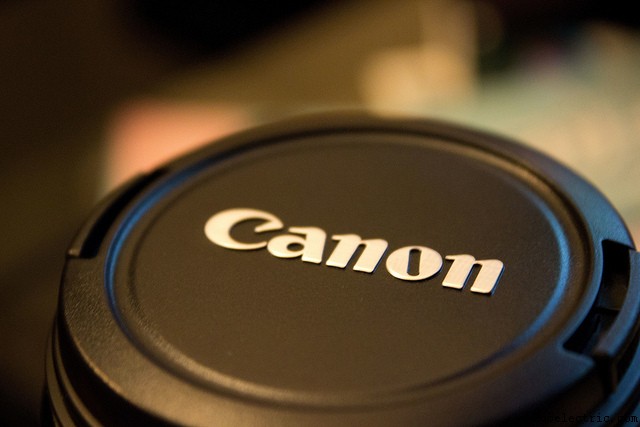
A Canon é uma das duas principais marcas de lentes no mercado. É uma lente para uma ampla variedade de
fotógrafos profissionais assim como os entusiastas da fotografia. Como a Canon é uma marca de alta qualidade, muitas de suas lentes tendem a ser caras, mas também existem algumas lentes mais acessíveis e excelentes ofertas.
Lente Zoom Telefoto USM EF 70-200mm f/2.8L IS II USM da Canon para câmeras SLR da Canon
Esta é a lente ideal se o seu trabalho exige que você tire muitos retratos, como fotos de casamento. Mesmo se você gosta de filmar cenas de esportes como hobby, esta é a sua lente. Possui comprimento de foco versátil e é ótimo para fotógrafos que desejam se aproximar de seus assuntos.
A 7 libras , é uma lente visivelmente mais pesada do que a maioria. Pode ser vendido por mais de US $ 2.000, mas ei! Lembre-se que você recebe o que você paga.
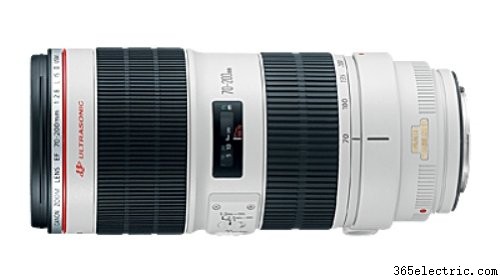
Lente da câmera Canon EF 50mm f/1.8 II
A menos que você seja um fotógrafo profissional com muitos shows, você realmente não deve pagar um braço e uma perna por suas lentes, mesmo que elas estejam entre as melhores nessas análises de lentes DSLR. Este modelo se encaixa perfeitamente nessa estipulação, pois é
muito acessível por aproximadamente US$ 100 , e sua qualidade óptica é bastante impressionante pelo preço! Se você é fã de close-ups extremos, então esta é a lente para você, contanto que você esteja bem em fotografar primes para retratos. Com apenas 1 libra, é bastante leve, o que o torna muito conveniente para levar para o campo com você.
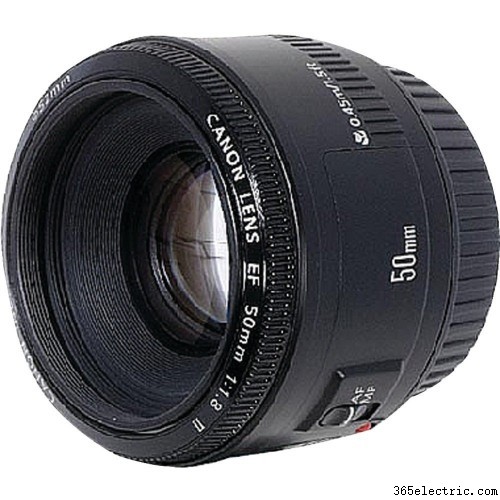
Lente Zoom Telefoto Canon EF 70-200mm f/4L USM para câmeras Canon SLR
Se você deseja uma lente significativamente mais barata do que a lente zoom telefoto Canon EF 70-200mm f/2.8L IS II USM, mas ainda com uma quantidade razoável de nitidez, esta é a lente para você. Não só é várias centenas de dólares mais barato, mas também é muito mais leve com apenas 3 libras.
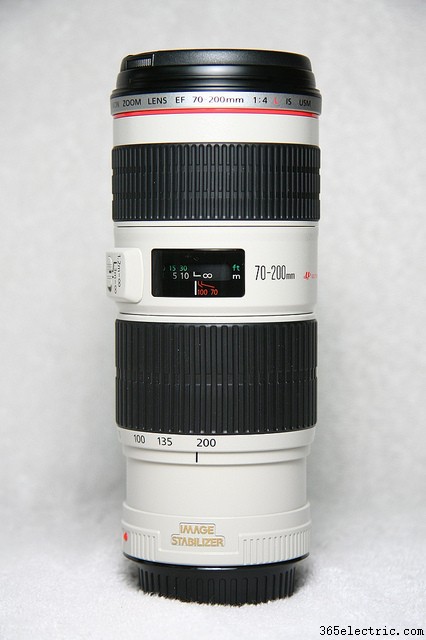
Ele também possui um sistema de foco interno, bem como um monitor ultrassônico para foco automático eficiente e silencioso. Com uma distância de foco mais próxima de pouco menos de 4 pés, esta lente certamente fornecerá fotos bastante precisas.

Lente Canon EF 85mm f1.2L II USM para câmeras Canon DSLR
Os fotógrafos de retratos já sabem que esta é uma das lentes Canon mais procuradas. Com abertura circular e AF de alta velocidade, lente telefoto média, monitor UltraSonic tipo anel e distância focal de 111 mm,
os fotógrafos de retratos certamente obterão as fotos mais cativantes e realistas com essa lente. Devido ao seu desempenho de alta qualidade, este modelo da Canon custará quase US$ 2.000, mas oferece uma excelente
profundidade de campo que aumenta a atenção do espectador para o assunto da foto, ao mesmo tempo em que desfoca o fundo. É por isso que esta lente é perfeita para casamentos e retratos.
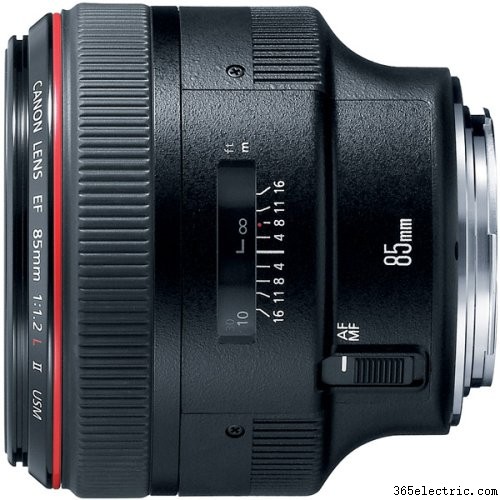
Lente Canon EF 100mm f/2.8 Macro USM para câmeras Canon SLR
Uma das melhores lentes macro que você encontrará em qualquer lugar, este modelo da Canon tem muitos benefícios para oferecer aos fotógrafos. Ele vem com um ângulo de visão diagonal de 24 graus, uma distância focal de 100 mm, um sistema de foco interno com um monitor UltraSonic e uma distância de foco que pode chegar a 1 pé. Sua melhor característica, porém, é provavelmente seu motor de ondas silenciosas. The focal length is absolutely delightful for shooting subjects that stand still (read:buildings, landscapes, etc.). So if you don’t have a requirement to shoot insects or fast-moving athletes, this should be perfect for you.
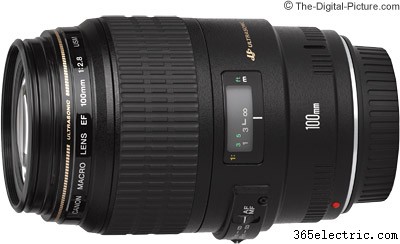
The Most Recommended Nikon Lenses
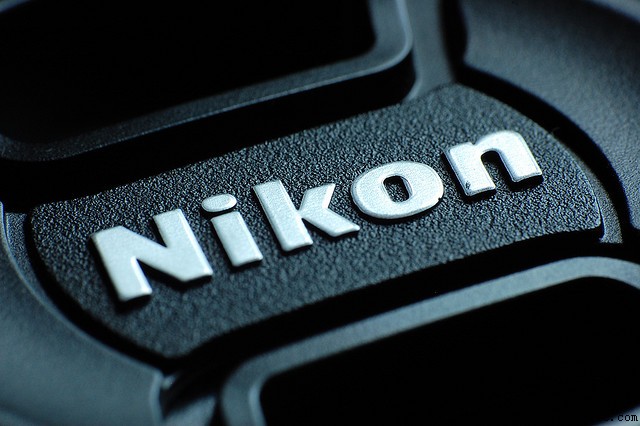
Nikon is the other big lens brand on the block, and its lenses have a reputation for great contrast, sharpness and color rendition. Some of its models even feature vibration reduction, which is great if you’re fond of shooting from moving vehicles. Nikon lenses tend to be pricier, too.
Nikon 28-300mm f/3.5-5.6G ED VR II AF-S Nikkor Zoom Lens for Nikon Digital SLR
Value and spectacular quality meet to offer one of the best Nikon lenses on the market right now. There are many factors to take into consideration when evaluating this model:Its widely praised zoom range, its relatively low price point (for what you get), and its brilliant optical quality.
This is the lens you want with you when you’re on vacation or even just photowalking in your own neck of the woods. If there’s a minus here, it’s a minor one:This model can be somewhat slow to focus, given the bigger focal range.
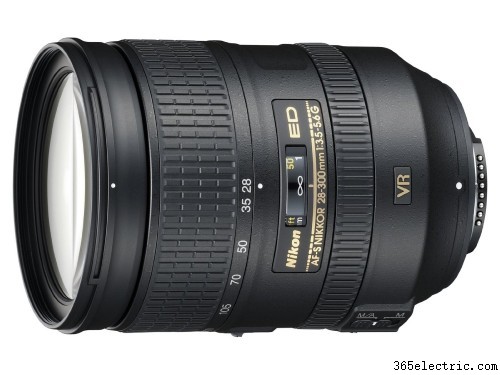
Nikon 70-200mm f/2.8G ED-IF AF-S VR Zoom Nikkor Lens for Nikon Digital SLR Cameras
The attractive aspect of this model is that it has a great reputation for being a high-quality lens, with many photographers giving it rave reviews. Some of its standout features include its relatively quick speed, vibration reduction and how it lends itself very well to being used for weddings, portraits and sports shots. Vibration reduction is especially sweet if you have a knack for taking a lot of pictures from moving cars, boats or even planes! One small note, though:It’s relatively expensive, so be prepared to shell out at least a couple of grand for this baby.
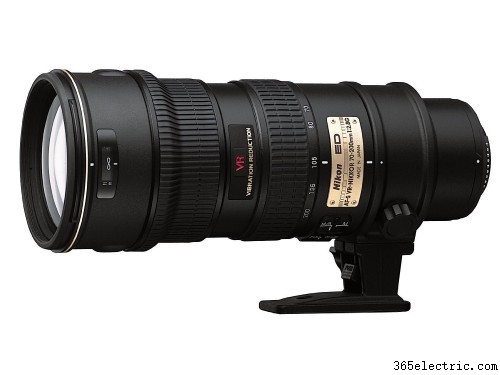
Nikon 105mm f/2.8G ED-IF AF-S VR Micro-Nikkor Lens
Canon had its entry into the macro-photography genre above, and now Nikon contributes its own macro-photography lens in this list of DSLR lens reviews.
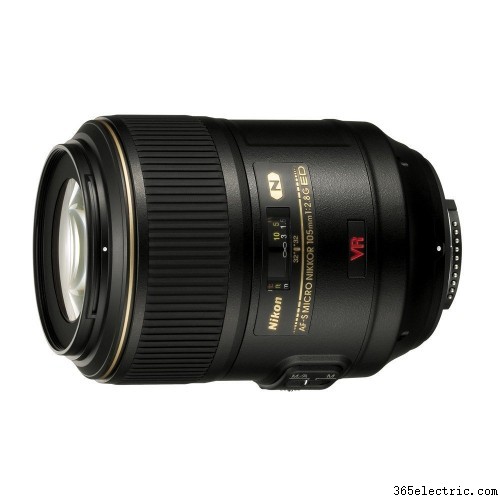
If you’re a fan of snapping shots of tiny insects, the delicate dew on flowers in the morning, and any object up close and personal, then you need this lens.
This Nikon model is exemplary because it has vibration reduction , which means that its quick aperture is going to be even that much more useful to you out in the field.

Nikon 70-200mm f/2.8G ED VR II AF-S Nikkor Zoom Lens For Nikon Digital SLR Cameras
Calling all portrait photographers! This is your go-to Nikon lens when you have to shoot weddings—you won’t be left disappointed. Its defining feature is that it provides super-sharp results through much of the focal range…what more could you ask for? Some portrait photographers may indeed like shorter focal length primes when taking portrait shots, but you’ve got to go with what works for you. Some of its best features include the silent-wave motor, vibration reduction, image stabilization and amazing sharpness and color correction, thanks to extra-low dispersion elements.
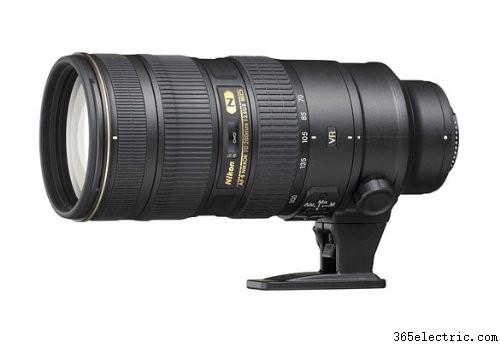
Nikon 24-70mm f/2.8G ED AF-S Nikkor Wide Angle Zoom Lens
If you’re looking for a fairly priced, easy-to-use and enjoyable lens, look no farther than this particular Nikon model. On Amazon.com, it currently enjoys a fairly high rating of 4.6 out of 5 stars, meaning that customer satisfaction is extremely high. Out of more than 230 reviews so far, the lens has nearly 200 5-star reviews. A zoom lens with a fair focal range, it impresses photographers with its fast-focusing abilities, sharp picture-taking results and comfort of use. All this boils down to a lens that’s
ideal for everyday photography , people shots and landscapes.
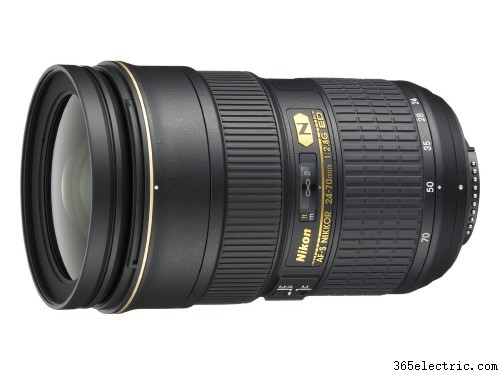
The Most Recommended Non-Canon/Non-Nikon Lenses
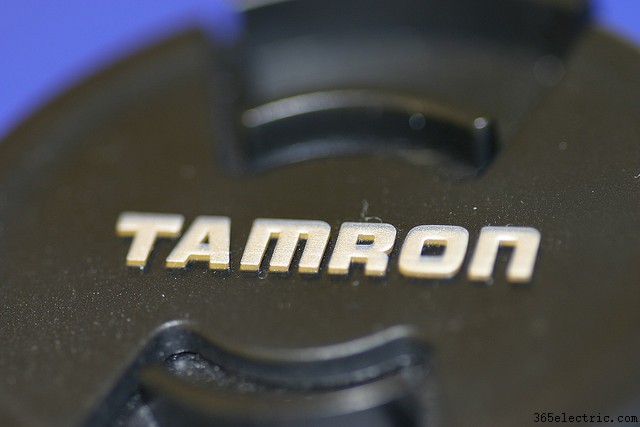
Sometimes, cheaper and lesser-known lenses are all you need! Unless you’re a professional photographer or someone who’s fond of showing off your brand-name lenses, you can do just fine with third-party lenses. While they’re not up to par, quality-wise, with Canon or Nikon, there are some gems to be found in this category.
Tamron AP 28-75mm f/2.8 XR ZL Di LD Aspherical Lens:Canon Version, Nikon Version, Pentax Version, Sony Version
Tamron may be a lesser-known lens brand, but you’d never know that from the sheer quality of this model. It’s gotten rave reviews from photographers who appreciate its various strengths, very affordable price tag and sharp quality. Costing just $500, this lens focuses very quickly, offers sharp picture quality and can even be used as an excellent macro lens as a bonus.
It is capable of focusing to within half a foot of any given subject! If you don’t mind purchasing a third-party lens, you can get a nice alternative to the much pricier Canon and Nikon lenses.
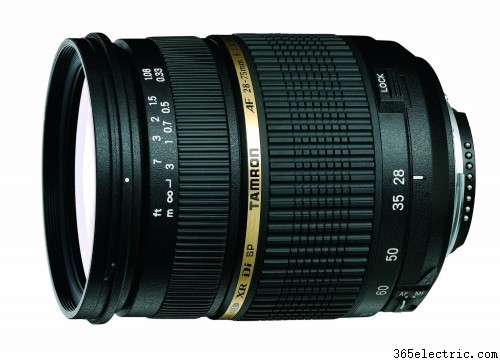
Sigma 10-20mm f/4-5.6 EX DC HSM Lens:Canon Version, Nikon Version
An enjoyable wide angle lens to have around when you take your camera bag and hit the town, this Sigma model features a hyper sonic motor. This means you get high-speed and silent autofocus, as well as full-time manual focus. For a third-party lens brand, it also possesses quite an impressive close-focusing distance of just 9.4 inches. At 3.2 inches in length and 3.3 inches in diameter, this is a compact lens that you should be easily able to take with you just about anywhere, which is a sizeable part of its appeal.
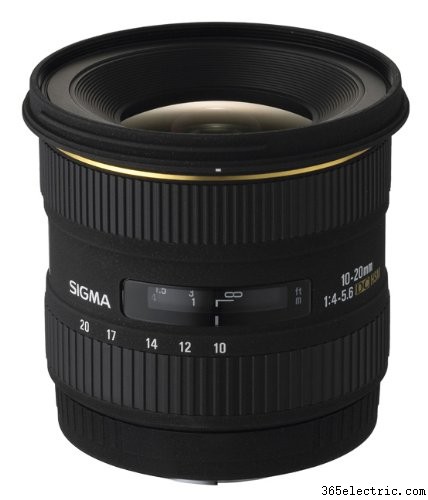
Tokina 11-16mm f/2.8 Lens:Canon Version, Nikon Version, Sony Version
It’s not too often that you come upon a wide-angle lens that is the epitome of affordability and great quality. This Tokina model fits the bill on both counts:Its sophisticated optics and quick aperture put it in a league of its own, at least as far as its competitors in this same price point are concerned.
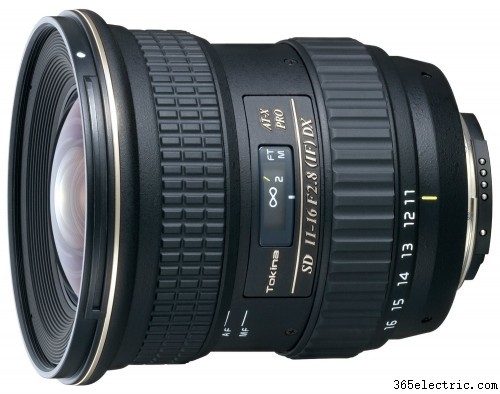
For added durability, all the moving parts of the lens are coated with an extraordinary lubricant. This Tokina lens can fit Canon, Nikon and Sony cameras.
This brand has a reputation for clean and really sharp images —you’ll see why when you use this lens.
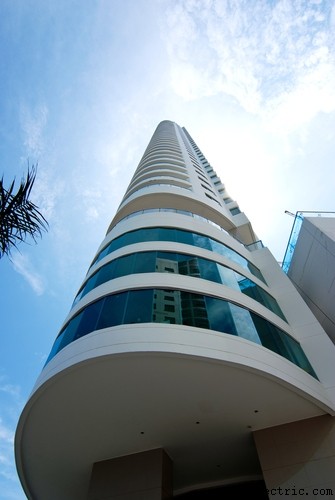
SMC Pentax FA 50mm f/1.4
Photographers always on the go who value lightness and compact lenses will be impressed with this lens from Pentax. At just under 8 ounces and only 1.5 inches, it’s a lens that’s meant to be as non-intrusive as possible. Featuring a completely automatic diaphragm and a fixed, 50-mm focal length, you can’t ask for much more at a price point of under $400. A small reminder:Even though this lens works fine with all Pentax SLR cameras, you can only use the AF system specifically with Pentax AF cameras.
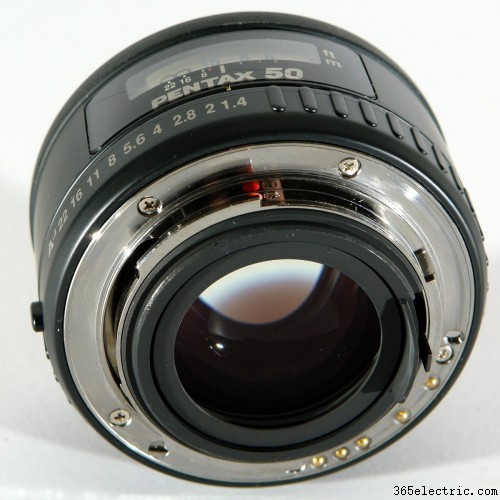
Sigma 50-500mm Lens:Canon Version, Nikon Version, Sony Version
Fair warning:This is the only lens on this list of DSLR lens reviews that doesn’t feature stunning optics. It’s still on this list because it offers adequately sharp, but not breathtakingly sharp, images. Besides, it possesses a comfortable focal range and an effective autofocus. The reason this baby’s on this list, though, is because it opens up opportunities for thousands and thousands of photographers who otherwise wouldn’t be able to buy a real telephoto lens for wildlife and sporting shots! Usually, lenses for sports and wildlife photography will run you approximately $6000, but this Sigma model is available starting at $1500.
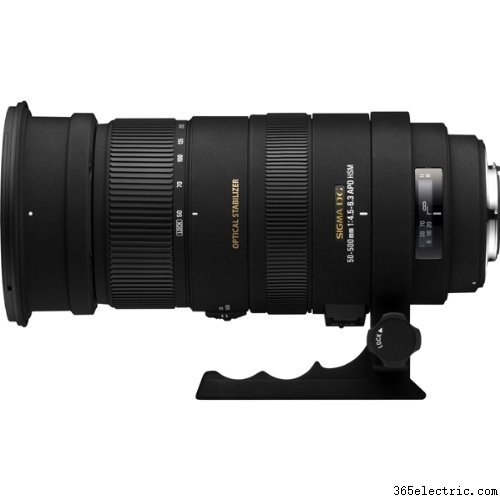
What’s the Best Lens for You?
It all depends! This authoritative list has taken you through a myriad of DSLR lenses that are perfect for photographers of all shapes and sizes. Are you a high-end photographer who needs to take wedding portraits for your job? You may want to strongly consider the Canon EF 70-200mm f/2.8L IS II USM Telephoto Zoom Lens. However, if you’re a budget photographer who doesn’t have the means to spend an arm and a leg for the latest equipment, you can still be happy with the quality of the Canon EF 50mm f/1.8 II Camera Lens.
There are even additional considerations beyond these. If you’re open to third-party lens manufacturers and don’t need to show off your Canon or Nikon equipment, then think about choosing a Tamron, Sigma, Pentax or Tokina lens. They’re cheaper than the Canon and Nikon lenses and still offer really good quality. Of course, if you have a passion for specialized and very refined photography that has you snapping shots from moving vehicles, you may want to splurge and get the Nikon 70-200mm f/2.8G ED-IF AF-S VR Zoom Nikkor Lens.
You and you alone decide on which lens works best for your priorities. The sooner you incorporate this philosophy, the faster you’ll find the perfect lens.
What are
YOUR favorite DSLR lenses? Do you have any memorable or positive experiences with specific lenses? Then, tell us all about them in the comments section! And, as always, feel free to share this post so more peeps can learn about photography.





















